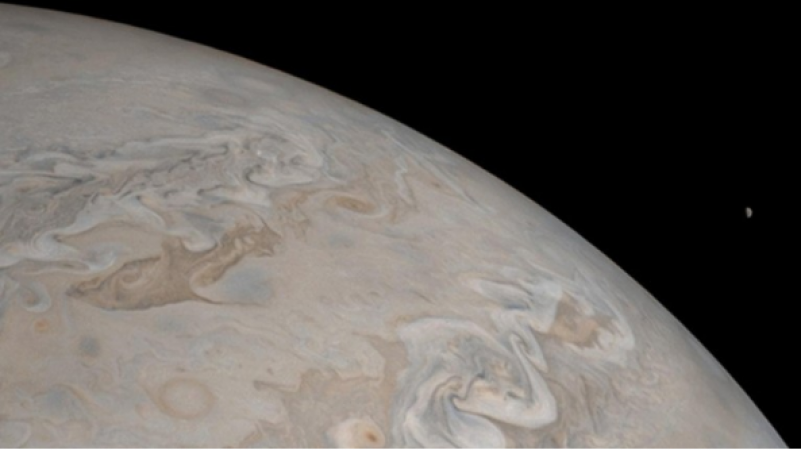
USA: A total of 92 moons have been discovered on Jupiter, making it the planet with the most moons in the solar system, according to astronomers. This is due to the discovery of 12 additional natural satellites.
With 83 confirmed moons orbiting it, Saturn, the previous record-holder, has dropped to second place.
The newly discovered moons of Jupiter have recently been added to a list maintained by the Minor Planet Center of the International Astronomical Union, according to Scott Sheppard of the Washington-based Carnegie Institution, who participated in the search for the moons.
Also Read: At least 23 people have died in Chile's forests due to numerous wildfires
In 2021 and 2022, the moons were discovered using telescopes in Hawaii and Chile, but to officially declare the discovery, the researchers had to track the moons' entire orbits.
According to Sheppard, the diameter of these new satellites ranges from 0.6 miles to 3 kilometres (km). He continued, "However, only half of them will be named, the rest being below the minimum diameter of 1.5km for naming."
In a previous interview with the website Sky and Telescope, the scientist noted that three moons rotating in a prograde direction were particularly difficult to spot. They are closer to Jupiter, and the planet's intensely scattered light is the cause, he said.
Also Read: Russian and Ukrainian prisoner exchange; bodies of British volunteers are returned
According to Sheppard, the numerous small satellites that orbit Saturn and Jupiter are thought to be the remains of larger moons that collided with comets or crashed into one another.
In order to more accurately ascertain their origins, he told AP, "I hope we can image one of these outer moons close-up in the near future."
In April, the European Space Agency will launch a spacecraft to study Jupiter and one of its largest moons, and in 2024, NASA will launch a mission to the planet's Europa satellite, which may have an ocean beneath its ice crust.
Also Read: There are three fatal avalanches in Austria
When it comes to natural satellites, Jupiter and Saturn vastly outnumber the other planets in our solar system. There are 27 known moons that orbit Uranus, 14 for Neptune, two for Mars, and one for Earth. There are no moons on Venus or Mercury.